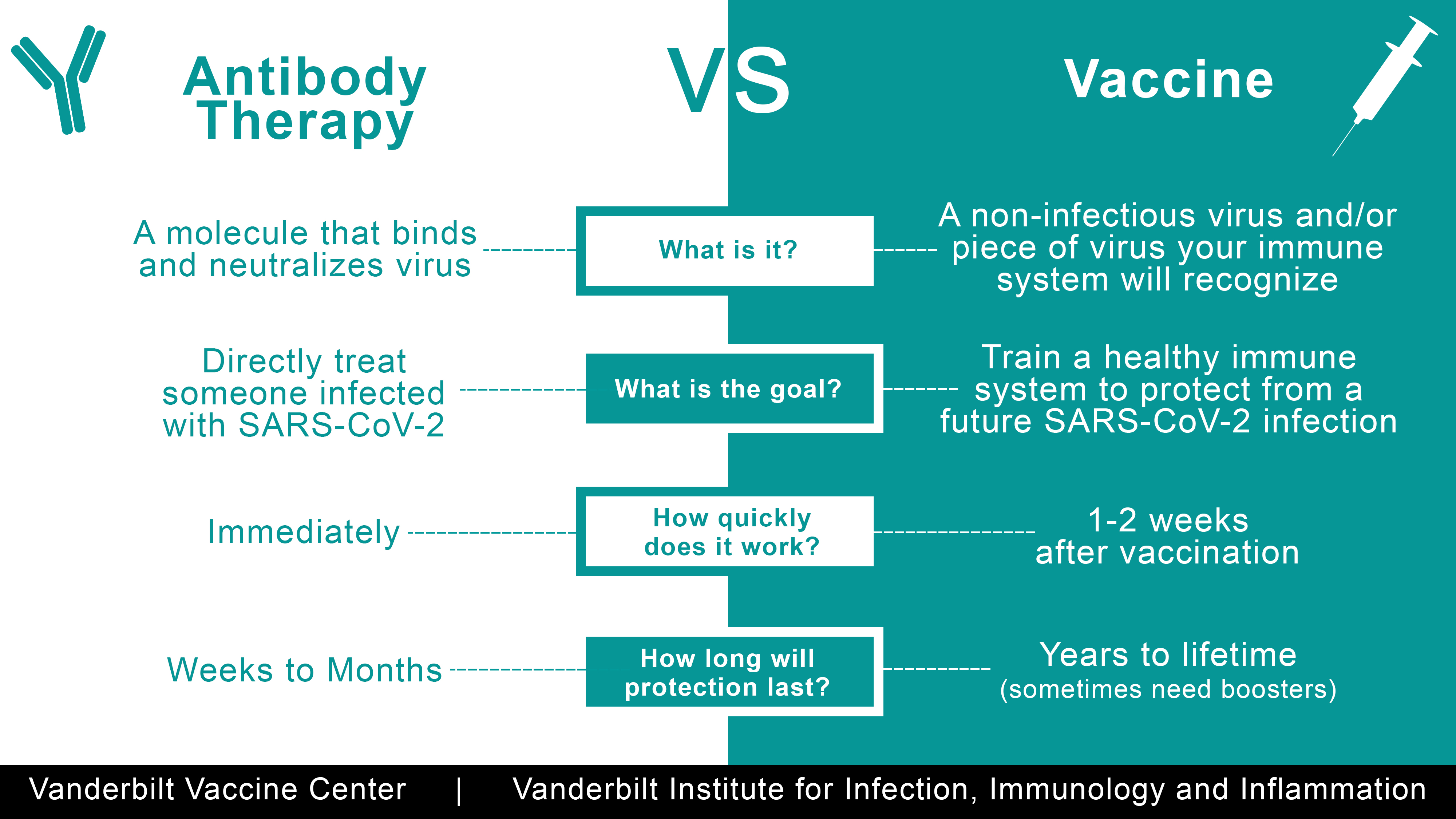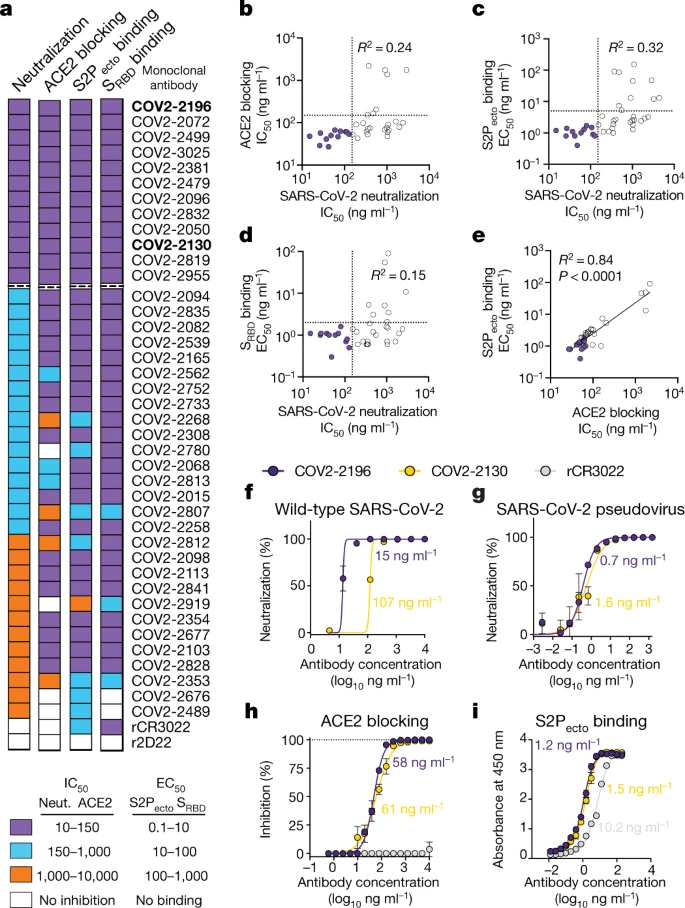
To share on Twitter click the button below or credit @VI4research!
Sharing elsewhere? Credit this page.
Vaccines and antibody therapeutics are two of the most promising measures to counteract SARS-CoV-2, and subsequent COVID-19 disease. While there is some overlap between these two approaches, there are some key distinctions to be drawn. Let’s go over the basics.
What is an antibody?
An antibody is a molecule made by your immune system in response to an infection. Your body has the ability to make incredibly diverse antibodies that can recognize just about anything, including SARS-CoV-2. These molecules are able to stick to viruses and prevent them from infecting your healthy cells.
How do antibody therapeutics work?
To make an antibody therapeutic, we can take blood from a person who has already survived COVID-19, extract the antibody-producing B cells, and use genetic sequencing technology to make antibodies. If we can identify the antibody that neutralizes SARS-CoV2 in a test tube, then we can produce massive quantities of that antibody to use as a drug. The antibody is injected into a patient experiencing COVID-19, helping them fight off the infection. These therapeutics are designed to treat existing cases of infection.
How does a vaccine work?
A vaccine, however, is what we call “active immunity.” A vaccine can be a piece of a virus, an inactivated virus, or a live virus that no longer has the ability to cause disease. When we inject this into a human being, the immune system launches an attack as if the person were actually experiencing a genuine SARS-CoV-2 infection. Here, though, the person will not get sick, and that attack will give the inoculated person what we call “immune memory.” Immune memory protects them from future infection because the body has already learned how to respond to the virus, allowing your body to clear SARS-CoV-2 before it can do any damage. In many cases, this protective immunity can last years to an entire lifetime. Vaccines are perfectly safe and can prevent healthy people from getting COVID-19 in the future. However, we cannot use this to treat a patient who is already sick.
So, what’s the difference? And why do we need both?
While an antibody can immediately treat an existing SARS-CoV-2 infection, a vaccine will train the immune system to battle future infections. We must develop a vaccine in order to afford the general population immunity to SARS-CoV-2, but must also have an antibody therapeutic to treat those who are already infected, or persons who have a medical condition that precludes them from being vaccinated (such as an immune deficiency). Having both of these powerful tools in our arsenal will ensure that the majority of the population is protected from the severe effects of COVID-19.




